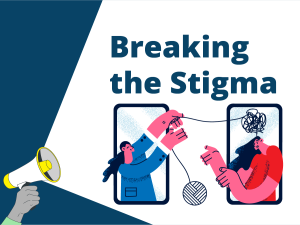Therapy is a tool which enables a person to better understand themselves and how they relate to others and the events that occur around them. Thus, therapy results towards deeper, meaningful relationships with others, a deep sense of calm and direction within one’s daily activities.
Therapy can be highly useful for an individual who has experienced traumatic events. These events can manifest through physical, emotional or sexual abuse, or neglect occurring in one’s childhood. Furthermore, they shape the individual’s worldview making them feel unsafe, affecting their overall wellbeing. Consequently, getting therapy helps them identify coping techniques to reshape their beliefs and replace their irrational thoughts and behaviors.
I recall a conversation with a friend, regarding who attends therapy. Some of the beliefs mentioned within this conversation were that:
‘Only insane and crazy people need therapy’
‘Therapy is for weak people who are not strong enough to resolve their problems and should not ask for help from others’
‘You only need therapy if you are weak people and don’t have friends to talk to’
However, in reality these are just misconceptions, and they are untrue. As we reflected on our conversation, we realized that the individuals who attend therapy are courageous, insightful, and inspiring. Indeed, individuals who attend therapy are people who want to learn about themselves by showing their vulnerability and facing their worst fears and discomforts. Their main aim is to better themselves in their viewpoints of life.
What is common amongst people who attend therapy?
Individuals who attend therapy are more often willing to take risks. This is seen through their openness in contacting with a stranger, such as the therapist, with the willingness to share their deepest regrets and worst fears.
Additionally, these individuals are willing to develop an insight and awareness of their unconscious beliefs and thoughts, which often affect their wellbeing. The process of self-discovery is often surrounded with overwhelming feelings and fear of regression. However, self-discovery enables the individual to move forward in achieving their goals in life.

Some of the common reasons why people attend therapy
- Individuals with symptoms of mental disorders: People experiencing symptoms of disorders such as depression, anxiety, attention deficit hyperactivity disorder (ADHD). Therapy can assist individuals in identifying and learning healthy ways to cope with these symptoms.
- Individuals experiencing distress: Many symptoms and sudden changes caused by mental disorders can result towards distress. Therapy can aid the individuals in coping with the changes in their sleep patterns, appetite, focus and socialization.
- Individuals seeking for support and healthy coping mechanisms: Therapy provides the individual with a safe space to be vulnerable, where the therapist views the individual with a non-judgmental view.
- Individuals working through self-exploration: Through therapy an individual is able to gain a deeper sense of who they are. They identify their strength and how to maximize them to reduce the effect if their weaknesses.











